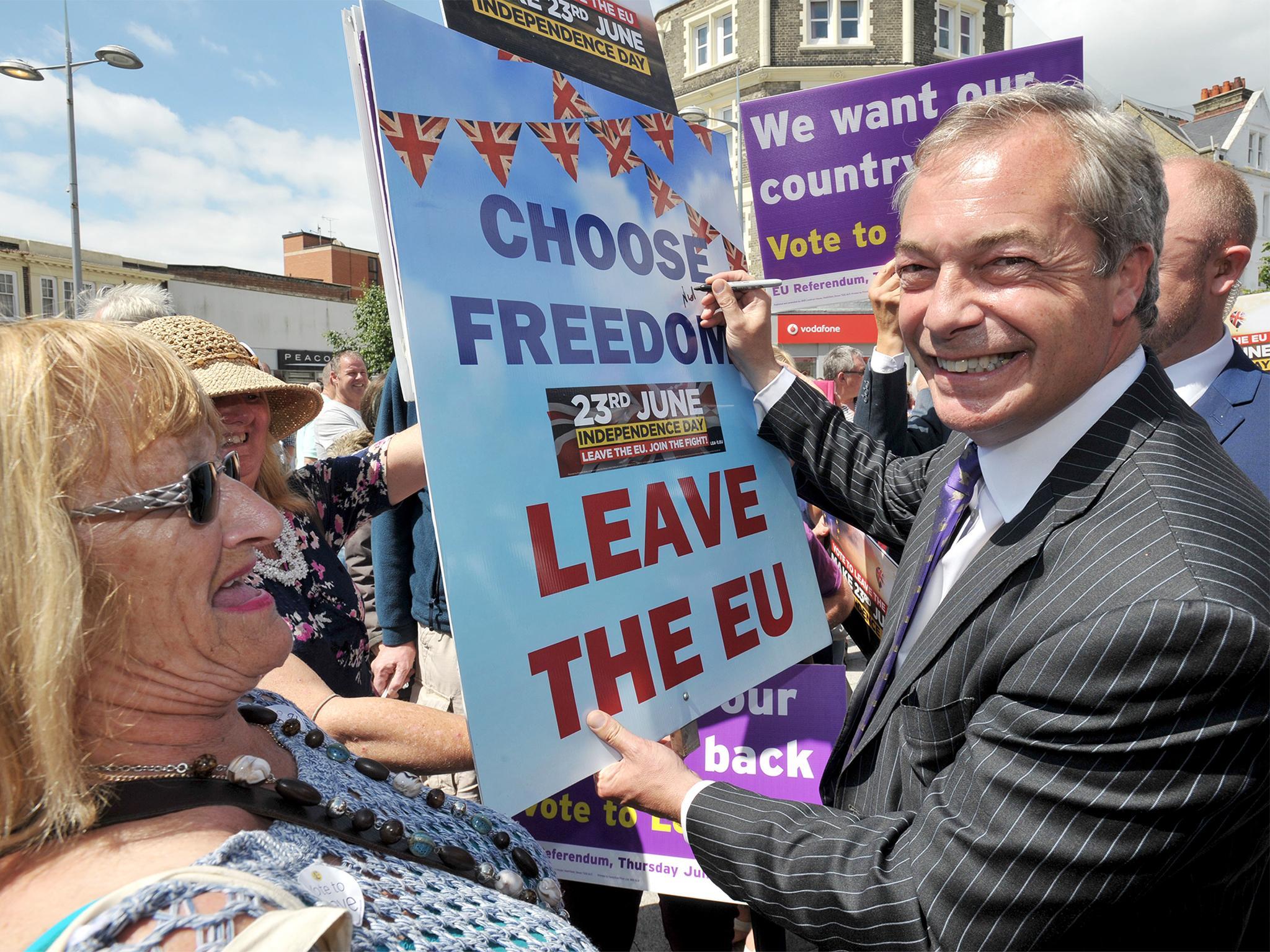Lamps out over Europe as Brexit marks the end of the European Union
The Brexit vote will encourage copycat challenges in countries such as Sweden, Denmark, the Netherlands – and even France

Your support helps us to tell the story
From reproductive rights to climate change to Big Tech, The Independent is on the ground when the story is developing. Whether it's investigating the financials of Elon Musk's pro-Trump PAC or producing our latest documentary, 'The A Word', which shines a light on the American women fighting for reproductive rights, we know how important it is to parse out the facts from the messaging.
At such a critical moment in US history, we need reporters on the ground. Your donation allows us to keep sending journalists to speak to both sides of the story.
The Independent is trusted by Americans across the entire political spectrum. And unlike many other quality news outlets, we choose not to lock Americans out of our reporting and analysis with paywalls. We believe quality journalism should be available to everyone, paid for by those who can afford it.
Your support makes all the difference.As the first world war approached, the British foreign secretary Sir Edward Grey remarked to a friend: “The lamps are going out all over Europe. We shall not see them lit again in our lifetime.” Watching the British referendum results from Paris early this morning, after 35 years covering European politics, I felt that the lamps were going out all over Britain.
One after one, the solid and familiar English towns that I have known all my life voted to turn their backs on the rest of Europe. “Bolton votes leave… Stafford votes leave… Lancaster votes leave.”
It is clear that the European project – muddled, frustrating but indispensable – has suffered the most humiliating and destructive defeat in its 60 year history. No member country has ever left the EU before– let alone a country with the global reach of Britain, representing over 10 per cent of the population of the EU and one fifth of its GDP.
Leave aside for a moment the rights and wrongs of the arguments on both sides. We have heard enough of those.
Britain and its European neighbours are about to enter a long period of bitter quarrels and recrimination at a time when the western world already faces dark and threatening economic and security challenges. The quarrels will last for at least two years and maybe as many as five.
Both Britain and the rest of Europe will be weakened. So will the entire western world.
After recovering from the shock of Britain’s “Out” vote, other European capitals will insist in the coming days that the European Union can survive, even thrive, without Britain. Maybe, they can. Maybe they cannot.
The Brexit vote will encourage copycat challenges in countries such as Sweden, Denmark, the Netherlands – and even France. The Dutch populist Geert Wilders called for a referendum in the Netherlands as soon as the UK result was known. The French far right leader Marine Le Pen tweeted the one word “victory”.
The pattern of yesterday’s vote – dividing the UK into rich and poor, young and old, the educated and less educated, struggling towns and thriving cities – may appear bizarrely British. It mirrors uncannily the electoral targets and successes of the far right Front National in France.
Our jilted partners will now seek to make Brexit as painful for Britain as possible, partly out of pique, partly to try to stamp out the possible brush fire of pressure for a a Frexit or a Nexit or a Scanexit.
At the Brussels summit on Tuesday, David Cameron will be treated as a miscreant. He will be asked to leave the room while the 27 talk among themselves. The anti-European Briitsh newspaper and anti-European British politicians will accuse the others of trying to humiliate Cameron and humiliate the British people.
That will just be the start. There is no jurisprudence for divorce in the EU. We can look forward to years of make-it-up-as-you-go-along quarrels.
“This is going to be a miserable business. Accession negotiations are painful enough but at least they have a constructive aim,” said a Brussels official, speaking before the results became clear. “No one can say what a secession negotiation might be like.”
Confusion will be piled in top of uncertainty. Will Britain seek to remain in the single market? If David Cameron – or his successor – tries to spin out the negotiations endlessly on this critical point, the French and Germans will insist on pressing the ejector button themselves. “Our means out,” they will say.
There is more. The EU, whatever the Brexiters, say is no monolith. Britain’s defection will inevitably touch off violent arguments between the 27. Some voices will call for a Great Leap Forward, towards a more federal EU. Others will want to create a two tier EU, circling the wagons around the founder states or Eurozone members and pushing the Esatern Europeans into a second division.
Nigel Farage is right about one thing: Brexit could be a prelude to a gradual – or maybe not so gradual – disintegration of the whole European project. He is not right to cheer.
You don’t like the European Union? Wait until you see what an EU-less Europe might look like.
Join our commenting forum
Join thought-provoking conversations, follow other Independent readers and see their replies
Comments